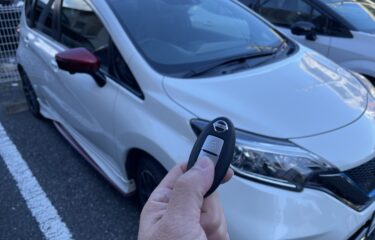- Blog
A Must-Have Checklist for Buying Japanese Cars in Sydney Without Regrets

For those living in Sydney and searching for high-quality used Japanese cars, finding a trustworthy vehicle is a crucial first step. However, buying a car is a significant investment, and if you overlook important details, you might regret your purchase later. Particularly with imported cars from Japan, there are specific points you need to pay attention to.
In this article, we’ll provide you with a comprehensive checklist to help you avoid regrets when buying a Japanese car . This list covers everything from setting a budget and checking the vehicle’s condition to verifying ownership and any existing debts through the PPSR (Personal Property Securities Register). Use this guide to ensure a smooth and informed car-buying process, and get the Japanese car of your dreams with confidence.
Basic Pre-Purchase Considerations

Setting Your Budget and Payment Method
When considering buying a car, the first step is setting your budget. This should include not only the purchase price but also taxes, registration fees, insurance, and maintenance costs. Car insurance premiums can vary depending on your location, so it’s essential to check these details in advance, particularly in areas like Sydney. Additionally, explore different payment methods like outright cash purchases, loans, or leasing options. Compare the pros and cons of each to find the best fit for your financial situation.
Understanding Sydney’s Car Market
While Sydney has a well-developed public transportation system, owning a car is often necessary for those living in the suburbs or traveling long distances. For many, Japanese imported cars offer an excellent solution, known for their reliability, fuel efficiency, and ease of maintenance. These qualities make them a popular choice or car owners, especially as they align with the practical needs of those living in Sydney. However, be aware of Sydney’s unique regulations, vehicle registration costs, and parking availability. Understanding these factors will help you make a more informed decision when purchasing your vehicle.
Pros and Cons of Importing a Car from Japan
Japanese used cars are often in excellent condition due to Japan’s stringent vehicle inspection system. Additionally, they are known for their fuel efficiency and environmentally friendly features, making them popular in Australia. However, importing a car from Japan can add extra costs like tariffs and shipping fees, making them more expensive than domestic vehicles. Also, sourcing parts and repairs might take longer, so keep this in mind when making your decision.
Choosing a Reliable Used Car Dealer
How to Verify a Dealer’s Trustworthiness
One of the most important aspects of buying a used car is selecting a trustworthy dealer. To verify a dealer’s reliability, check if they have a valid license, a long-standing reputation, and solid after-sales support. Additionally, ensure that the dealer provides transparent information regarding the car’s history and condition.
Making the Most of Reviews and Testimonials
Reviews and testimonials are valuable resources for understanding other buyers’ experiences. Platforms like Google Reviews and Facebook community groups are great for researching a dealer’s reputation. It’s also helpful to ask for recommendations from people who have already purchased a vehicle .
Recommended Dealers for High-Quality Japanese Cars in Sydney
Sydney has several reputable dealers specializing in high-quality Japanese used cars. These dealers are known for their strict quality control and excellent customer support. When choosing a dealer, compare their vehicle inventory and the after-sales services they offer to ensure you’re getting the best deal.
Key Things to Check Before Buying

Inspecting the Engine and Transmission
The engine and transmission are the heart of any vehicle. To ensure they are in good condition, a test drive is essential. Listen to the engine’s sound, check the acceleration, and make sure the transmission shifts smoothly. Additionally, inspect the engine oil and coolant levels as part of your pre-purchase checklist.
Mileage and Service History
Mileage is a key indicator of a used car’s lifespan and condition. Generally, lower mileage indicates a better-maintained vehicle, but it’s important to also review the service history. Verify that regular maintenance has been carried out and check for any major repairs.
Accident and Repair History
A car with a history of accidents or major repairs may present future issues. Ask the dealer to provide detailed information about the vehicle’s accident and repair history. Pay particular attention to any frame damage, as it can have long-lasting effects on the vehicle’s safety and performance.
Checking PPSR (Personal Property Securities Register) for Ownership and Debts
The PPSR is an essential tool for verifying ownership and any outstanding debts on a vehicle. This register helps you ensure the car isn’t still under finance or that no one else has a claim on it. If you are purchasing from a dealer, they typically perform this check for you, so you don’t need to worry. However, if you’re buying from a private seller, it’s critical to conduct this check yourself.
PPSR Costs

The cost of a PPSR check is minimal, approximately $2 AUD (as of 2024). This small investment can save you from potential headaches by confirming that the car is free from any debts or claims.
Why You Must Do a PPSR Check in Private Sales
In private sales, a PPSR check is crucial. If the car has any unpaid loans attached to it, you could end up having to return the vehicle to the lender. There’s also the risk of buying a stolen or previously damaged car. Completing a PPSR check takes only a few minutes online and is a simple yet effective way to avoid unnecessary risks.
How to Conduct a PPSR Check
Performing a PPSR check is easy. Visit the official Australian government PPSR website, enter the car’s VIN, and pay the small fee using a credit card. In just a few minutes, you’ll receive detailed information about any existing financial claims or ownership disputes tied to the vehicle. Make sure you complete this step, especially in private transactions, to avoid legal and financial complications down the road.
After Purchase: Maintenance and Support
The Importance of Regular Maintenance and Servicing
Regular maintenance is key to keeping your car running smoothly for years. For imported vehicles, routine care is even more critical to avoid costly repairs. It’s important to find a reliable service center before purchasing your vehicle and ensure that the dealer offers maintenance plans.
Post-Purchase Maintenance Checklist
Creating a post-purchase checklist can help you manage your vehicle’s upkeep. Include regular oil changes, tyre rotations, and brake inspections in your schedule. Keeping your car in good condition will extend its lifespan and protect your investment.
Choosing the Right Insurance and Support Services
Chosing the right insurance plan is critical for protecting your car. Depending your needs, you might consider comprehensive coverage or third-party liability insurance. Don’t forget to explore roadside assistance services as well, as they can be a lifesaver in case of unexpected breakdowns.
Conclusion: The Final Checklist for a Worry-Free Japanese Car Purchase

Before making your final decision, revisit this checklist to ensure you’ve covered all the important steps. From setting a budget and conducting a PPSR check to understanding maintenance needs, following these guidelines will help you make a confident decision.
Ready to find your high-quality Japanese car? Visit Roundabout Australia for a selection of trusted, well-maintained imported vehicles with no middleman markup.
Popular

- Japanese Used Car
- Blog
The Pitfalls of Purchasing Imported Japanese Used Cars
27 February 2024

- Blog
Your Complete Guide to Buying a Used Car in Australia: From Pre-Purchase Inspection to Post-Purchase Maintenance
01 October 2024

- Car Functions
- Blog
Smart Key Solutions: Battery Replacement and Troubleshooting
23 March 2024

